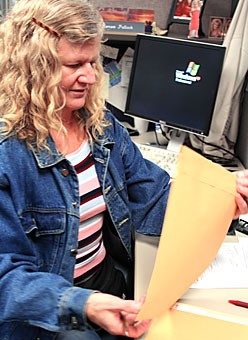Arizona’s new minimum wage was implemented Jan. 1, and although the UA is not required to comply with the increase, some university departments are following suit – a move which could increase food and convenience item prices next semester.
The price increase will not go into effect until July 2007, said Dick Roberts, UA budget director.
“”In early February we will begin local budget processes, and the Union will present a budget update for this year and also a projected budget for next year,”” Roberts said.
The statewide increase from $5.15 per hour to $6.75 per hour does not apply to the UA because it is a government institution, but Roberts said only a small portion of university employees make less than $6 per hour.
“”Seventy to 80 percent of hourly wage employees are above (the new) minimum wage and no fulltime employees are below $8.15 if you break it down into hours,”” Roberts said.
Even though the UA doesn’t have to pay the new minimum wage to the remaining 20 percent, there is a matter of fairness, Roberts said.
Dan Adams, director of Arizona Student Unions, said yesterday that union administrators have decided to pay the new state minimum to the approximately 700 students currently employed.
“”We are going to go ahead and sort of follow the state minimum wage out of fairness to the students, and we also didn’t want to be at a disadvantage with local businesses,”” Adams said.
Additionally, any employee who already makes $8 or less per hour will get a pay increase of 25 cents to help address compression issues, Adams said.
Compression happens when an entry-level employee is paid more, bringing his pay closer to what a current mid-level employee is making.
To keep things fair, one would expect mid-level employees’ wages to be increased also.
This ripple effect will cost the student unions $125,000 this semester, but if prices do go up, they will not increase until the new fiscal year, which begins in July.
Roberts said raising the minimum wage has its pros and cons.
“”The truth is, not a whole lot of millionaires are eating at McDonald’s – so who does this affect? You, the students, of course, and part of the conversations we (administrators) are having is, ‘Will the price of a hamburger go up?'”” Roberts said.
Marshall Vest, director of economic and business research at the UA, said that on the state level, businesses that pay minimum wage, like fast food restaurants, will likely need to increase their prices to pay the higher wages.
This would include the fast food-type businesses at the Student Union Memorial Center and other union locations.
“”The important thing to realize is that for every skill level, there is a market … so what you’ll find is if you have a person who isn’t worth $6.75 an hour, their job may disappear. Fortunately, there’s not too many of those jobs,”” Vest said.
Vest said these types of employers will need to increase revenue, most likely by collecting more donations.
Roberts added that university administrators are anticipating a federal minimum wage increase within the next few years, and dealing with that change will be more difficult than dealing with the statewide change.
“”The good thing is, since we are exempt from this state minimum, we can approach the increase at a lower trajectory,”” Roberts said. “”Prices might go up, but at a slower rate than the rest of the state.””









